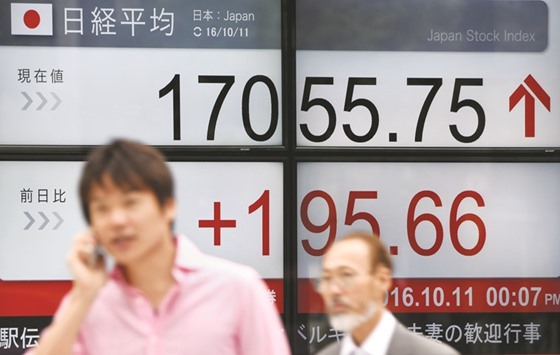Samsung Electronics plunged 8% yesterday after it called an unprecedented halt to sales of its troubled Galaxy Note 7 handset, while most regional markets struggled to maintain an early energy-fuelled rally.
The world’s biggest smartphone maker dragged Seoul’s KOSPI down 1.2% after it told customers to stop using their Galaxy Note 7 devices and called a halt to worldwide sales, as US officials warned the phones could blow up.
The announcement came a little over a month after the world’s largest smartphone maker announced a recall of 2.5mn Note 7s in 10 markets following complaints that its lithium-ion battery exploded while charging.
The crisis has turned into a PR disaster for the company, which prides itself on innovation and quality, and the situation only worsened when reports emerged a week ago of replacement phones also catching fire.
Samsung’s share price plunge followed a 1.5% fall on Monday on reports it was suspending production of the device, after major distributors stopped offering replacements for defective handsets because of continued safety concerns.
“If it’s once, it could be taken as a mistake. But for Samsung, the same thing happened twice with the same model so there’s going to be a considerable loss of consumer faith,” said Greg Roh at HMC Investment Securities. The issue weighed on tech shares in Asia with Lee Kyoung Min, a senior analyst for global investment strategy with Daishin Securities in Seoul, telling Bloomberg News that “uncertainty surrounding the information-technology industry (is) spreading”.
The KOSPI was among the big losers in the region, where the morning saw every market up as a rally in oil prices on Monday propelled energy firms.
Oil dipped slightly after soaring around 3% on Monday in response to comments from President Vladimir Putin that Moscow was ready to align with Opec’s push to limit production and address a supply glut.
His comments at the World Energy Congress in Istanbul came as Saudi Energy Minister Khalid al-Falih predicted prices could rise further, having been under pressure since mid-2014 on the supply glut, overproduction and weak demand.
Big-name energy-linked firms jumped in Wall Street and their counterparts in Asia initially followed suit before the rally lost steam.
Later yesterday the International Energy Agency said the glut could weigh on world markets well into next year unless Opec makes good on its promise to cut output.
At the end of the trading day Tokyo was 1% higher at 17,024.76, while Sydney and Wellington each gained 0.1%.
Shanghai closed up 0.6%.
But Hong Kong reversed a morning rally to end 1.3% lower at 23,549.52, with developers also hit by measures in some Chinese cities aimed at cooling property prices.

People walk past an electronic quotation board flashing the Nikkei key index in front of a securities company in Tokyo. Japanese shares rose yesterday, extending a global rally, as a jump in oil prices boosted energy firms while exporters won support from a weaker yen.
